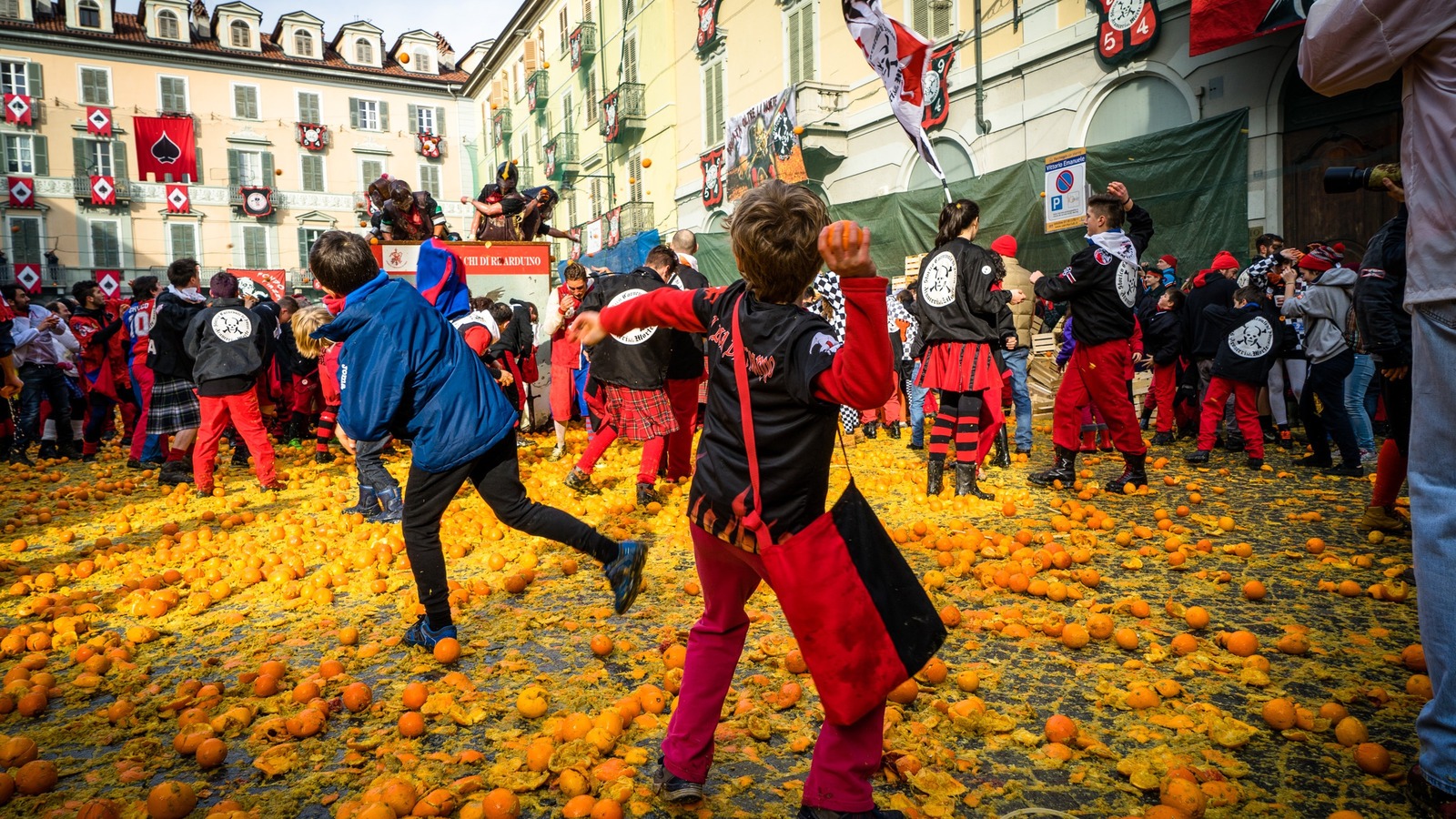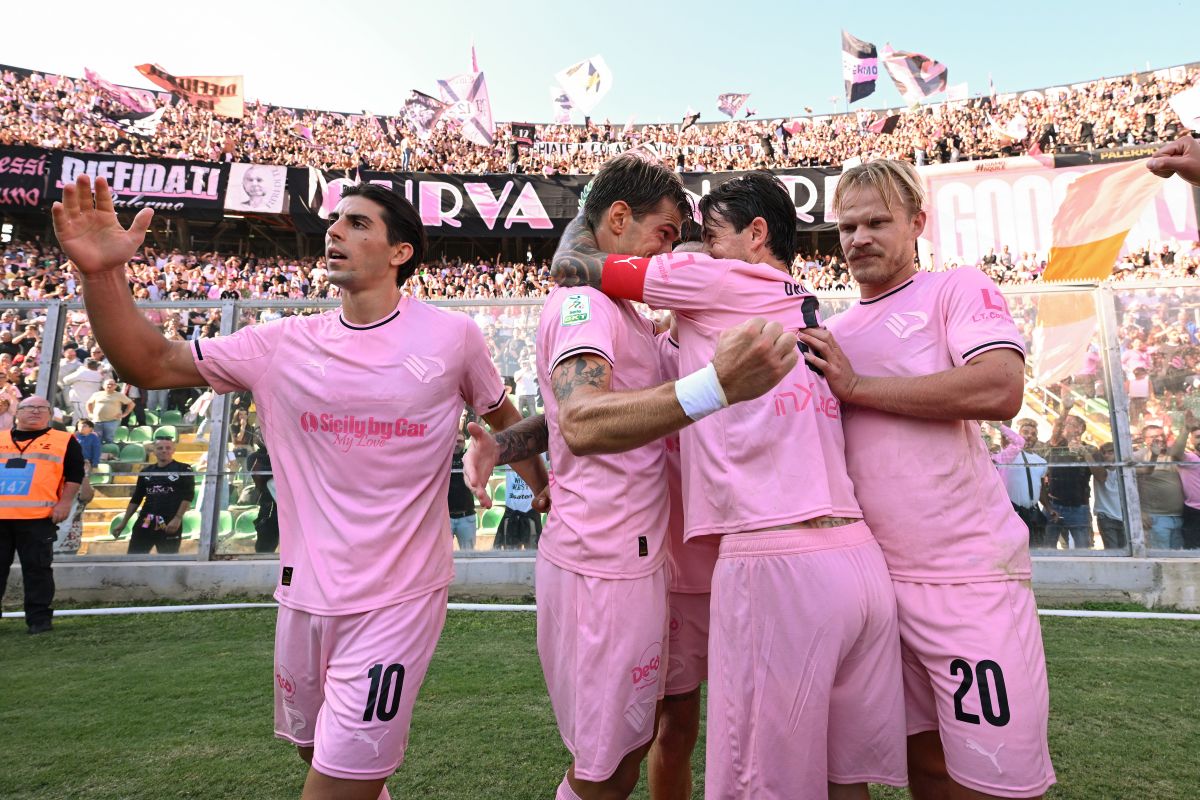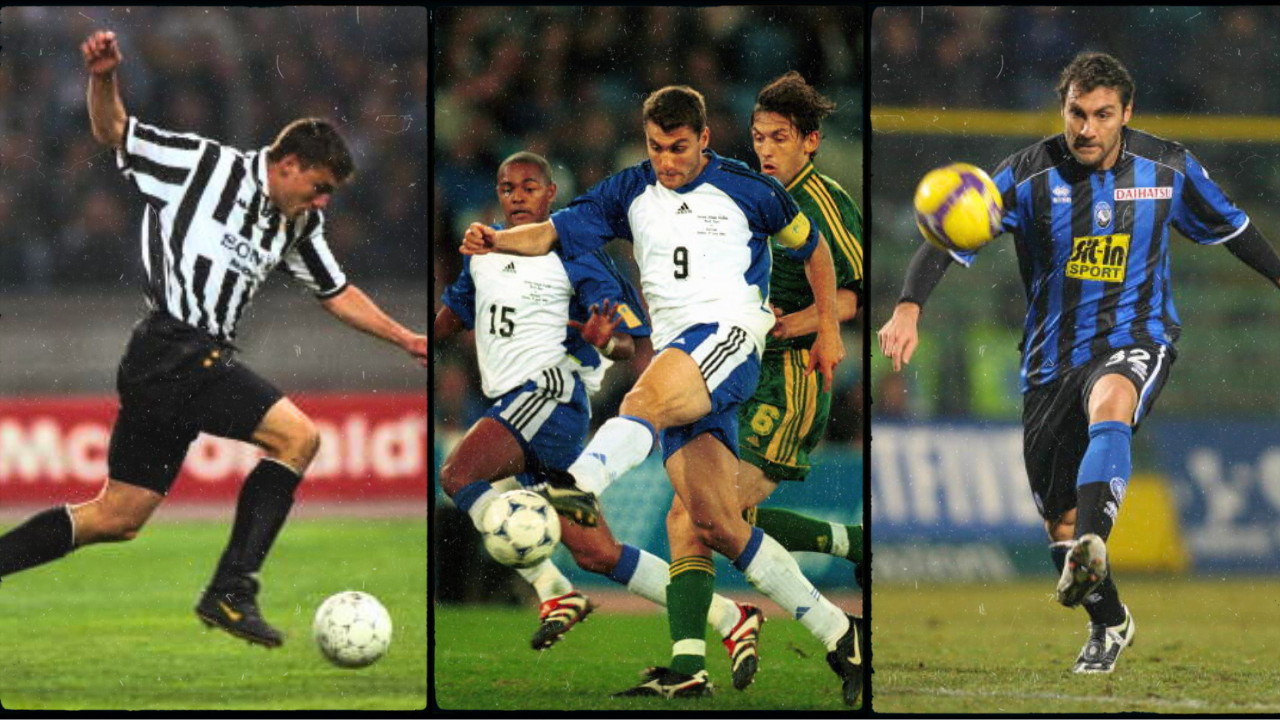
EXCLUSIVE: Christian Vieri on Best Career Moments and Possible Return to Australia
Sportsmen evolve into superstars by outshining their peers on the pitch. But few transcend on-field glory and progress into punditry, broadcasting and ambassadorship.
Christian Vieri’s journey is unlike any other Italian football legend. He won trophies, broke world records and equalled Paolo Rossi and Roberto Baggio’s World Cup goal tally. After hanging up the boots, his big personality forged partnerships beyond the pitch, engaging fans across Italian and English-speaking audiences.
Destination Calcio caught up with the Lega Serie A ambassador at the Home of Serie A event in the English capital.
“It’s amazing. One of the best cities in the world, London,” Vieri tells us shortly after captivating a room full of calcio fanatics during a Q&A.
But this was not the first time Vieri had entertained football lovers on UK soil. In 1999, the then 26-year-old scored a miracle header for Lazio against Real Mallorca in the UEFA Cup Winners’ Cup Final at Villa Park.
“Birmingham, yeah. Wow, 20-25 years ago,” Vieri recalls, visibly struggling to extract one of the many highlights from his memory bank.
With 236 goals at club level, one can forgive Vieri for taking an extra moment to sort through the mental archives, back to when he towered above Mallorca captain Javier Olaizola to nod Giuseppe Pancaro’s long ball into the top corner from the edge of the penalty box.
In his prime, Vieri was considered one of the top strikers on the planet. This was backed up by his world-record £32M move to Inter just weeks after taking the Biancocelesti to continental greatness.
But during an era where the Nazionale could afford to shun the likes of Paolo Di Canio and Igor Protti, breaking through the ranks would take something special.
There was no Alessandro Del Piero-like fairytale rise to the top of the calcio pyramid for Vieri, who was shuffled between Serie B sides Pisa, Ravenna and Venezia in the first five years of his career.
The Italian football landscape was dominated by Gabriel Batistuta, Roberto Baggio, and George Weah, with dozens more starlets loitering intently. Progression often meant starting low and aiming high, cutting your teeth and proving one’s mental toughness (fare la gavetta, as Italians say).
Finding himself in the top flight for the first time since his Torino stint, Vieri managed ten goals in all competitions for Atalanta in 1995-96, including two in the Coppa Italia semi-final victory over Bologna. As the second-highest scorer for La Dea behind Domenico Morfeo, Vieri quickly became the leading candidate to replace Chelsea-bound Gianluca Vialli at Juventus.
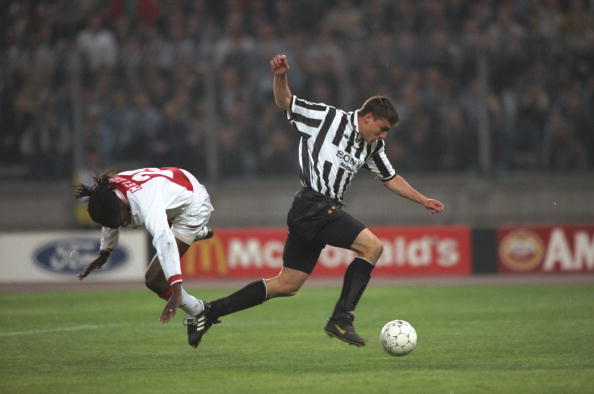
At 23, Bobo was unleashed by manager Marcello Lippi at the highest level, matching Del Piero’s four Champions League goals as the Bianconeri eliminated Ajax for the second successive season. It was a transformative summer for Juve, securing Zinedine Zidane, Paolo Montero, Mark Iuliano, and Alen Boksic.
“Yeah, there were some questions about what were the best moments,” Vieri explained.
“The Ajax games with Juventus in the Champions League, we won there 2-1. The 6-1 against Milan, the Inter-Parma games. There were a couple of games.”
In the second half of the campaign, Lippi poured his trust into Vieri, starting him in the Champions League Final against Borussia Dortmund and, a month earlier, at the San Siro when Juve put Milan to the sword.
Franco Baresi and Paolo Maldini could do little to stem the flow of goals: Vieri set up Vladimir Jugovic’s opener and then scored twice in the second half, displaying the bravery to take on and beat Baresi repeatedly. The match signalled the end of the Arrigo Sacchi old guard and ushered in a new era of audacious, ambitious Italian strikers.
Only Del Piero (15) eclipsed Vieri (14) as Juve’s top-scorer that season, prompting Spanish giants Atletico Madrid to swoop in with a £12.5M offer, five times more than what La Vecchia Signora paid less than a year previously.
Twenty-nine goals across La Liga and the UEFA Cup ensured a call-up by Cesare Maldini for France ’98 and a lucrative move back to Serie A at Lazio. Such was Vieri’s enthusiasm to get back to Italian soil, he even disowned a Ferrari 550 Maranello owed to him by Atletico President Jesus Gil.
In 1999, Sven Goran Eriksson’s side, led by Vieri and Marcelo Salas, finished second in Serie A and made history in Birmingham, triggering determined Inter president Massimo Moratti to negotiate a then-world record £32M transfer fee in early June, days before Vieri touched down in Sydney to lead the line for FIFA AllStars XI.
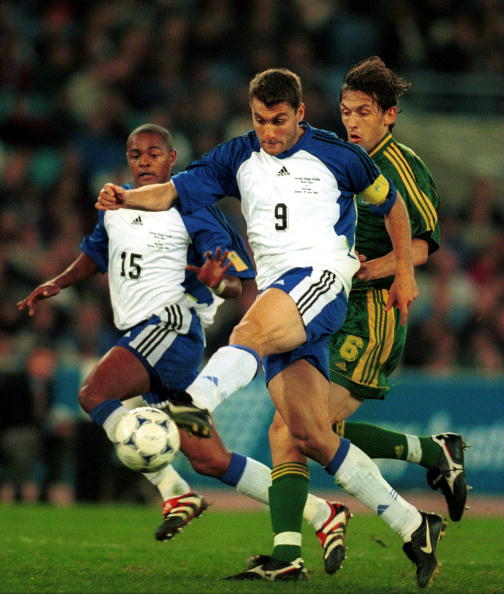
“We played in the new stadium,” Vieri explained. “It was amazing. I think there were 70,000 people. It was an amazing game, a fun game,
Rest of the World against Australia.”
Who better to inaugurate Stadium Australia than locally raised Vieri, who spent most of his childhood in Sydney’s western suburbs?
“You know what I used to watch in Australia? Neighbours,” confessed the former Marconi Stallions youth player. “I used to watch…Skippy The Bush Kangaroo. Sale of the Century. What was it called? The Brady Bunch.”
For much of his distinguished career, Australian football laid claim to Vieri’s talent. He was brought to Sydney at age four when his father, Roberto, left Bologna for National Soccer League heavyweights Marconi.
The apple doesn’t fall too far from the tree. Roberto spent much of his career up forward at Sampdoria, Roma and Juventus and represented Italy at under-23 level. Before retiring, he scored 17 times in 69 matches during his initial three-year deal at Bossley Park, a period in which Christian’s younger brother Max was born in 1978.
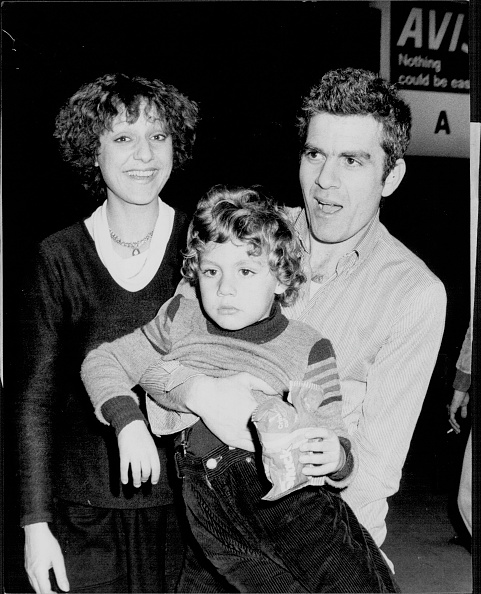
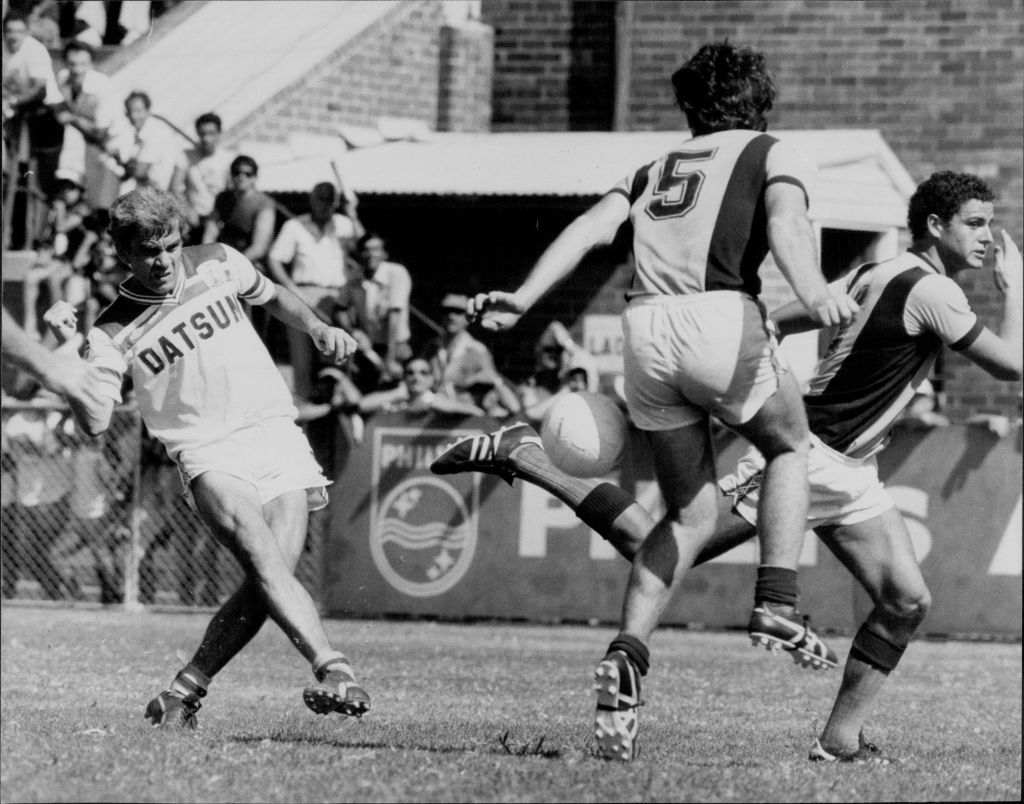
Roberto moved the family back to Italy permanently in 1996, just in time to monitor Christian and Max’s progress at Juve. It was there that the latter earned call-ups to Lippi’s senior squad, including that 6-1 thrashing of Milan, but never made it onto the pitch ahead of Nicola Amoruso.
In 2004, Sydney again became an extra special place for the Vieri’s when Max was selected for Australia’s friendly with Turkey at Sydney Football Stadium.
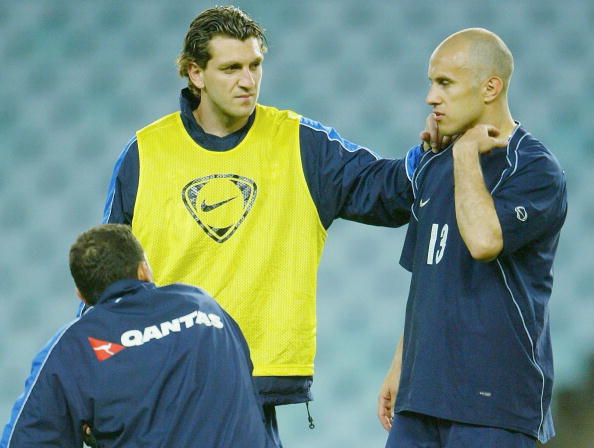
With Max based in Tuscany and his pursuit of a coaching career, the Australia-Vieri legacy has been over for some time.
Much has changed Down Under since Christian’s last visit. The NSL of old, in which his father played, was dissolved and replaced with the A-League, and the Socceroos have since qualified for five World Cups, one more than Italy during that period.
Moreover, the quality of Italian restaurants has (arguably) improved depending on whether you like your pizza bases thin or thick. Second-generation Italian-Australians have perfected the art of coffee, dominating the World Barista Championships.
But when it comes to schiacciata and pasta, Vieri is adamant that his hometown, Milano, can not be beaten.
“If you want good schiacciata, you go to All’Antico Vinaio, (the) best in the world. You’ll put on a couple of kilos but it’s ok.”
“I’ve been going to the same place to have lunch every day for 25 years.
It’s called Mimmo Osteria del Corso, (the) best pasta in Italy. So, if it’s the best pasta in Italy, it’s the best pasta in the world.”
Twenty-five years of Lombardia-based living has earned Vieri the right to make worldly claims, but they don’t stop at merely cheerleading the local cuisine.
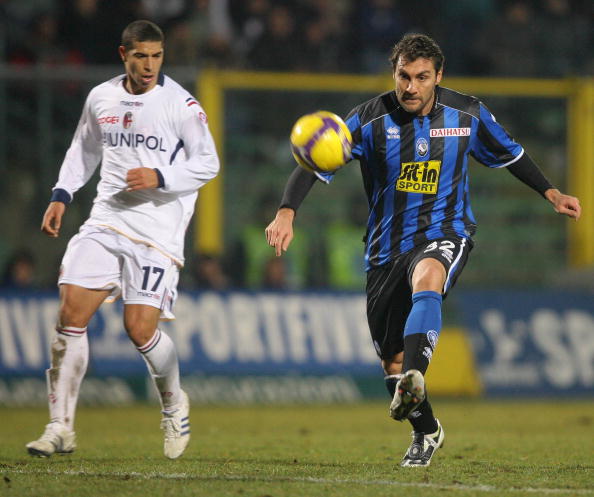
Over half of Vieri’s playing career was spent in the region, with three seasons in nearby Bergamo at Atalanta. For centuries, the Bergamaschi have been nourished by polenta and casoncelli dishes. However, only since 2016 have they been blessed with the presence of title-winning manager Gian Piero Gasperini.
“Gasperini, I think he’s done a phenomenal job,” Vieri added. “He’s one of the best coaches in the world. What he does with that team, I don’t think anyone (else) can do. Only he can do that.”
Vieri’s take on Gasperini is widely shared by his former peers in the world of media, an industry that the 51-year-old has recently traded in so he can spread the gospel of Serie A through ambassadorship.
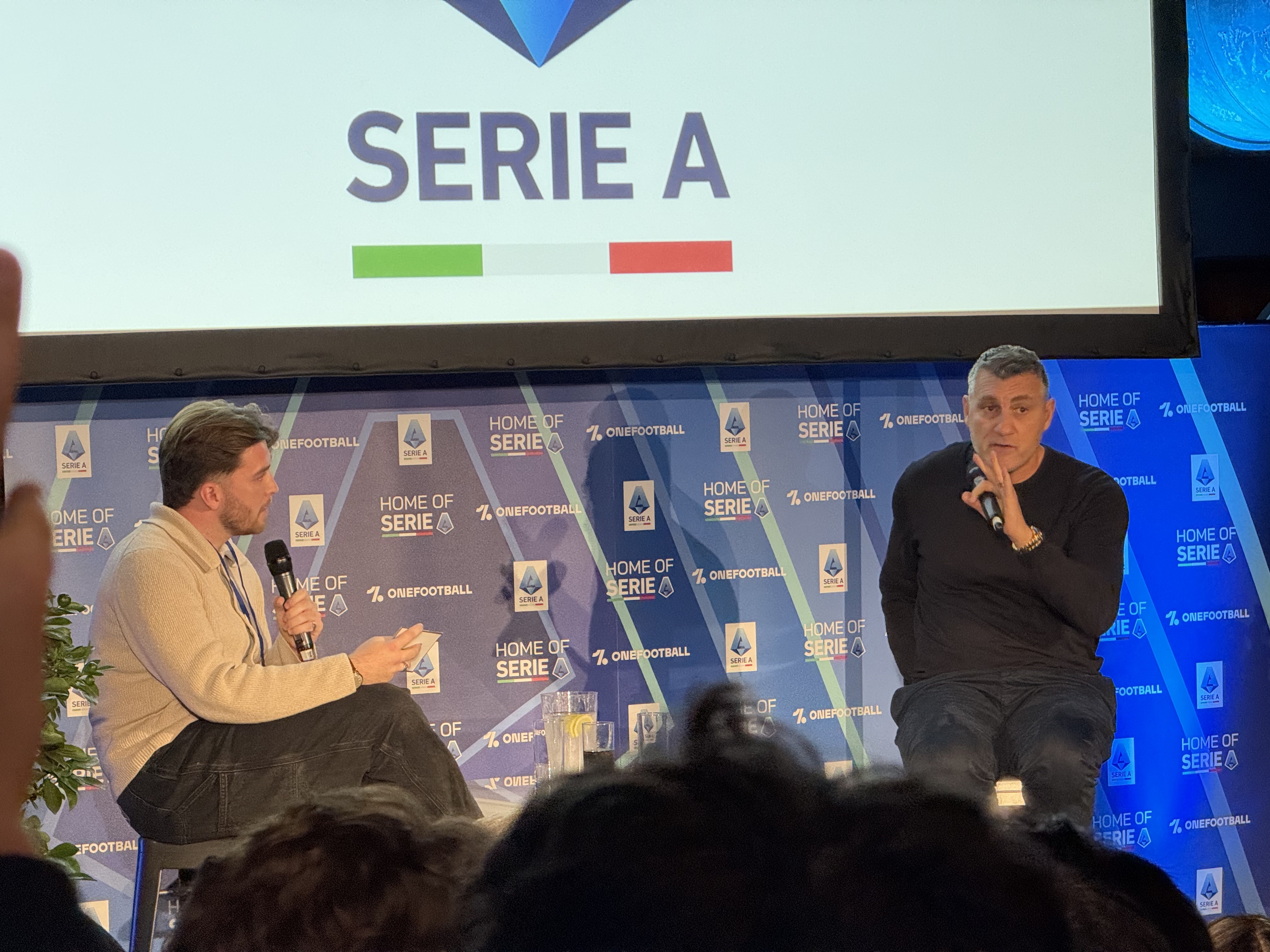
The fans still revere him as one of the best ever. Not many in Vieri’s cohort of exceptional forwards were compared, as he was, to Gigi Riva or Gianluca Vialli. He was the number nine that Italian football was waiting for, powerful and deadly in front of goal, with a gypsy spirit that lured him back to Italy from Australia.
Home is where the heart is. For Bobo, this is undoubtedly Milano. But 2025 could be the year that he rediscovers his roots.
“See you in Sydney,” he tells me in a distinct Italo-Australian accent. “March, April, (the) first time in 25 years. Let’s see what happens.”
Watch our full interview with Christian Vieri:
Related Articles
Related Articles
Football rivalries, world-class sport, surreal carnivals, and a tradition you won’t find anywhere else. Five events to catch in February.
In the latest edition of My Town, My Team, Napoli fan Alex told us why everybody should visit Naples at least once.
Sampdoria against Palermo at the Stadio Luigi Ferraris is just one of the standout matches to be shown live on Destination Calcio TV.


